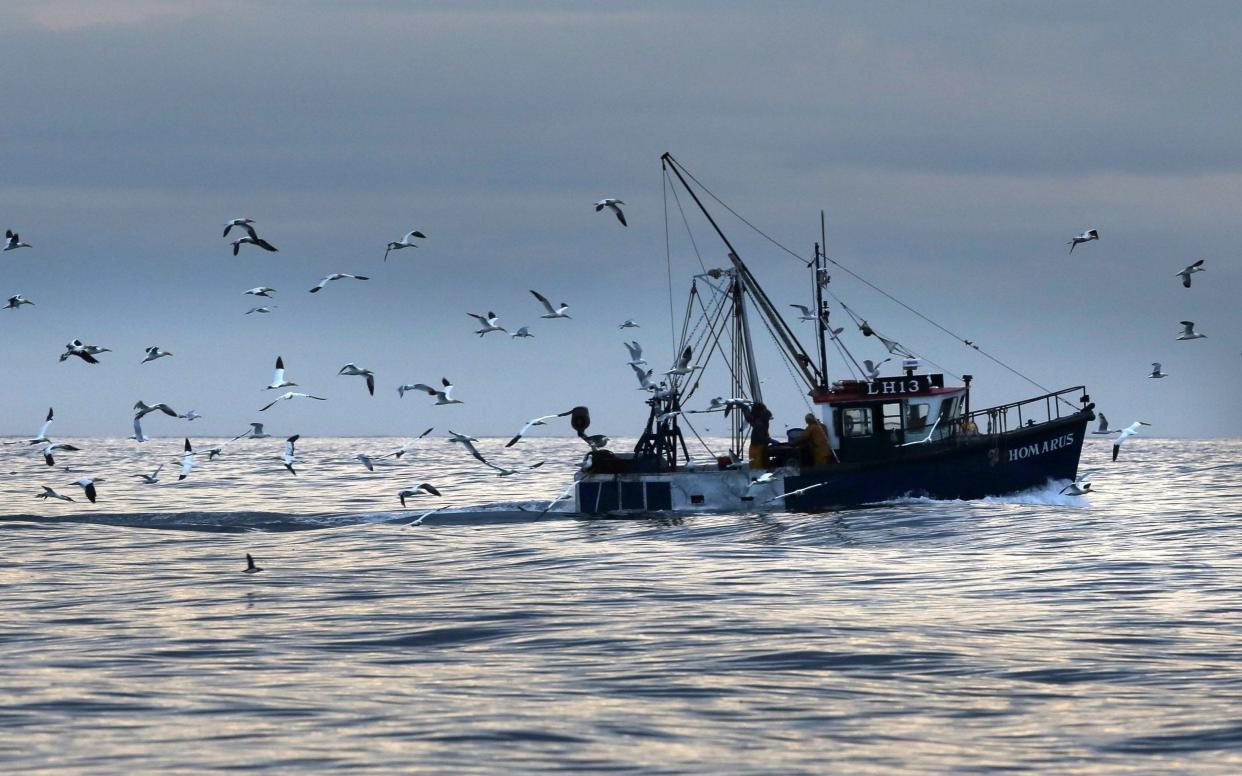UK Brexit negotiators to tell EU that fisheries cannot be part of free trade agreement

British Brexit negotiators will tell the European Union that a new fisheries agreement cannot be part of a free trade deal with Brussels during divisive talks that risk derailing the delicate negotiations this week.
The UK will rebuff EU demands that the fisheries agreement, which both sides pledged to do their best to seal by July, be subject to the same governance mechanism that would police and enforce commitments in the free trade agreement.
The British position sets David Frost, the UK’s top Brexit official, on a collision course with Michel Barnier as three days of talks over continued access to British waters for the EU fleet begin on Tuesday.
British officials have submitted a legal negotiating text setting out its vision for a Norway style fishing agreement with catch limits agreed on an annual basis. Michel Barnier accused the UK of wasting time after the last round of talks ended in bad-tempered frustration.
“Our position on fish is reasonable and straightforward. We want a separate fisheries framework agreement which reflects our rights under international law and which provides for access and sharing opportunities based on the scientific principle of zonal attachment, with sustainability at its core,” a UK official said.
The Norway-style agreement risks infuriating Mr Barnier, The EU negotiator has warned Brussels will not agree a free trade deal without a fisheries agreement. Mr Barnier is also adamant that any fishing agreement cannot be renegotiated every year and must be for the long-term.
Annual negotiations on fish alone would give the UK more leverage in talks than it would have in the trade negotiations. France has called for the fisheries agreement to last for up to 25 years.
The EU has demanded continued reciprocal access to UK waters under “existing conditions”. UK sources close to the negotiations reject that as simply continuing the Common Fisheries Policy.
The CFP is based on historic catch shares that date back to the 1970s and 1980s, which disadvantage British fishermen. More fish are now in UK waters because of climate change and zonal attachment more accurately represents that than the historic catch system.
The British insistence that the legal text not be shared with EU member states has angered ambassadors, as have warnings from London that the UK could walk away from the talks in July, unless the EU caves on its demands. EU ambassadors instructed Mr Barnier to hold firm at a meeting in Brussels last week.
UK officials believe that the EU is in breach of the Political Declaration, the non-binding aspirational document that sets out the terms of the negotiations, which is an accusation regularly levelled at the British by Brussels.
“The Political Declaration clearly sets out that an agreement on fish should be in force by July - just over two months away,” a UK spokesman said.
“Yet the EU continues to push for one single overarching agreement, despite that clearly being at odds with the Political Declaration, which envisages a separate agreement on fisheries.”
EU sources said that the Political Declaration was clear the fisheries deal would be part of an overarching economic partnership.
British negotiators are pinning their hopes on the EU’s national leaders, such as Angela Merkel and Emmanuel Macron, to intervene in the deadlocked talks in June and break the impasse. EU diplomats warned that no such political intervention would be forthcoming.
A high level meeting is planned for June by both sides where progress towards the agreement, which must be finished by the end of the year unless the transition period is extended, will be evaluated.
Downing Street insists that the transition period will not be extended under any circumstances, despite the coronavirus pandemic slowing negotiations and forcing them online.
Failure to reach a deal in time will mean the UK and EU trading on far less advantageous WTO terms and, according to the Withdrawal Agreement, an extension of up to two years can only be asked for until July.

